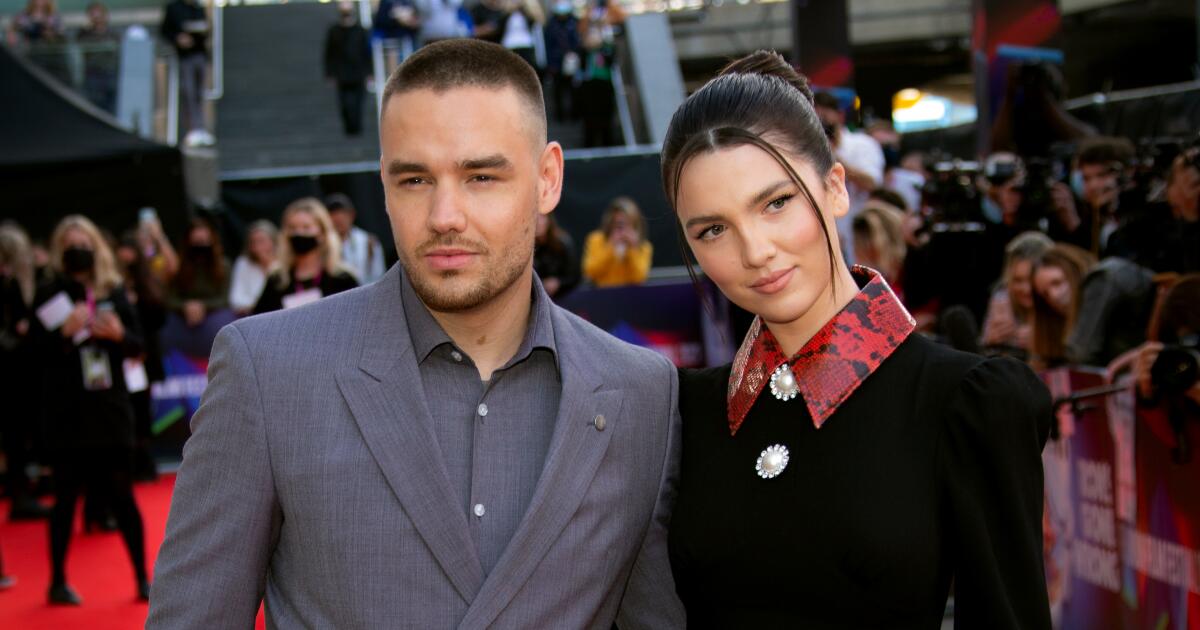The tragic death of former One Direction singer Liam Payne, who fell from a third-floor balcony at a Buenos Aires hotel Wednesday, has brought added attention to a novel written by ex-girlfriend Maya Henry that includes one scene eerily reminiscent of news reports out of Argentina this week.
In Henry’s book — “Looking Forward,” a work of fiction “inspired by true events,” the cover says — a model named Mallory falls in love with Oliver, member of a popular boy band called 5Forward that has been assembled after auditions for a TV show called “Star Power.” Toward the end of the book, which was published in April, the character of Mallory returns to the London flat she shares with Oliver to find him suffering a drug-fueled mental breakdown. He is screaming and crying and slapping himself on the face. At one point he threatens to jump off a balcony, saying he’s going to kill himself.
“He stands outside, in the dark London night, sobbing and unsteady, the handrail only a few feet away. And below that is the cold hard pavement,” Henry writes in her book. “I watch in horror as he sways a bit, unsteady on his feet, inching ever closer to the railing. He has to stop, I think. I have to stop him.”
Pablo Policicchio, a spokesperson for the Security Ministry of Buenos Aires, said Wednesday that Payne had thrown himself from the balcony of his hotel room. The Times’ report said police found substances in the room that appeared to be drugs as well as evidence of alcohol. Payne’s hotel room had “various destroyed objects and furniture,” including a smashed TV screen, police said. Policicchio added that police were sent to the hotel after receiving an emergency call about an “aggressive man who could be under the influence of drugs or alcohol.” When they arrived, they heard a thud and found Payne’s body in the courtyard, Policicchio said.
In Henry’s book, the protagonist wraps her arms around Oliver and pulls him inside the flat. But Oliver becomes increasingly agitated, ranting and pacing. He punches a hole in the wall, he curses. Oliver then grabs an axe and swings it, smashing the TV. Oliver raises the axe high in the air, shattering a chandelier. Glass crashes down, cutting Mallory.
In the book, Oliver is confused, terrified and then angry. He calls Mallory a “bitch,” and then he cries and calls her “my sweet angel.” He sobs and then passes out.
In Henry’s book, Mallory doesn’t see calling the police as an option because of the tabloid attention that would generate. Oliver’s manager comes to the flat, accompanied by Oliver’s psychiatrist, a doctor and a lawyer. They discuss follow-up care with a doctor who has signed a nondisclosure agreement. The lawyer will deal with damage control, including the press, but all leaks seem to be patched.
“They have done extensive work to control his destructive impulses, I learn, but he continues to grapple with demons relating to deep-seated trauma,” Henry writes. The pressure of fame and an unrelenting schedule “only exacerbates these trauma-related demons and leads to episodes of impulsive destructivity.”
In the book, Oliver wakes up and sobers up. When he sees and hears about what he has done, he is distraught and contrite. When COVID-19 hits, Oliver’s security guard lives with the couple, protecting Mallory from Oliver, and Oliver from himself. The cycle repeats until Mallory has had enough and finally leaves.

